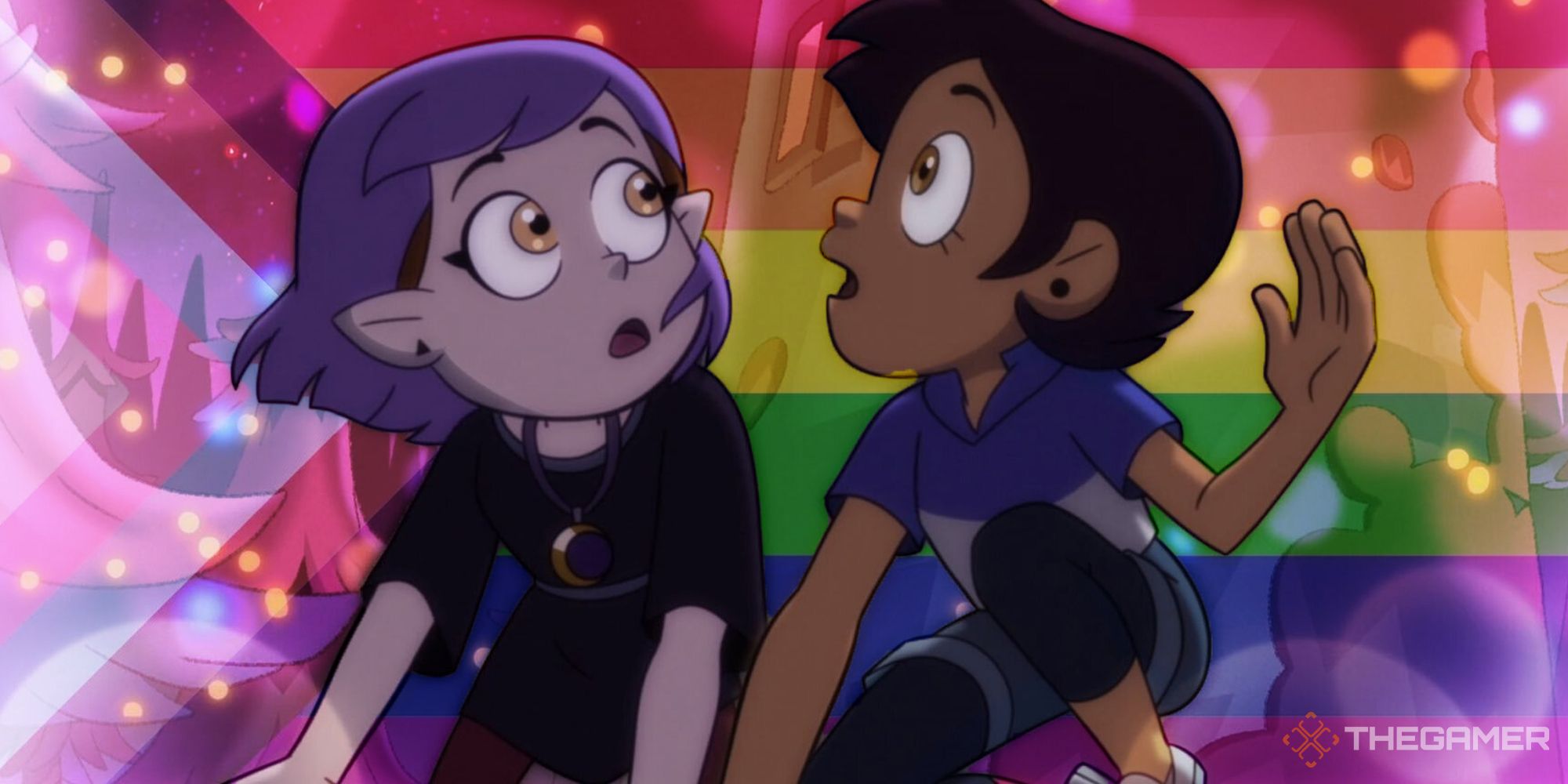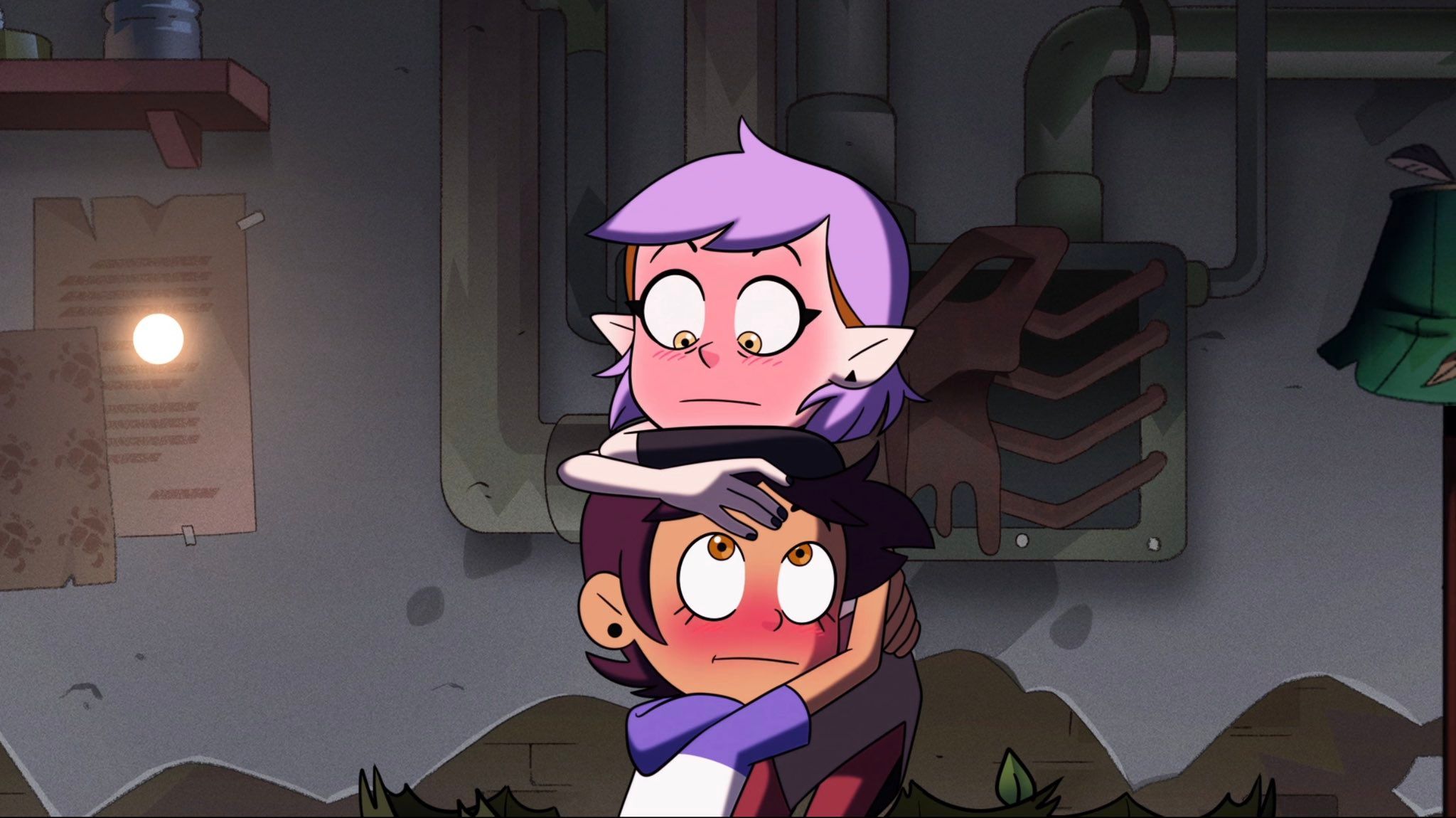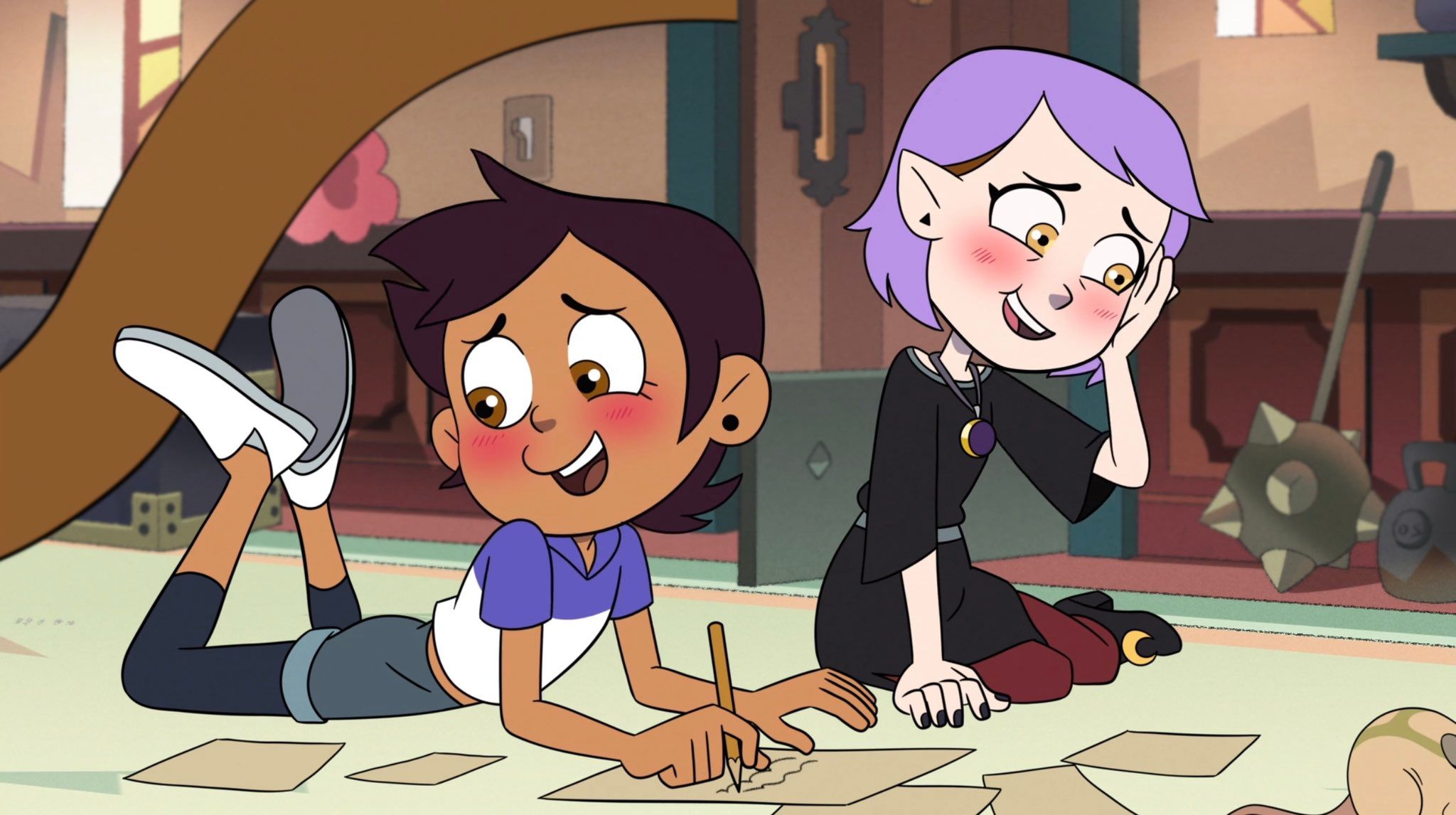I sound like a broken record by now, but The Owl House made animation history again last week. ‘Knock, Knock, Knockin' On Hooty's Door’ was an episode that many fans had assumed would be filler, focusing on a secondary character instead of continuing the arcs of Luz, Amity, Eda, and King. It seems show creator Dana Terrace and the team at Disney knew we’d go into the episode with these expectations so they could turn the tables and blast us away with a queer explosion of untold proportions. Spoiler alert: Luz Noceda and Amity Blight are girlfriends now. These witches gay, good for them.
What I expected to be a fun distraction away from the main narrative turned out to be an episode that pushed forward a trio of major plot threads, leading to romantic confessions, inner acceptance, and new characters who will play a big role in the adventures to come. It was massive, leading to a deluge of fanart across social media and production staff breathing a sigh of relief that they could now talk about the canonical couple without stepping on eggshells all the time. It’s been a delight to watch unfold, even if the episode’s events were spoiled for me on Twitter long before I had a chance to see them for myself. Either way, Luz and Amity’s adorable teenage confession is explictly queer - something Disney often avoids in favour of subtext - and it’s well worth celebrating what this means for the future while looking back on the past developments that made it all possible.
Hooty’s name is in the episode title, so the strange bird tube plays a large role in everything that happens. Upon writing a letter to Lilith about his eagerness to assist those around him, Hooty sets off to help King find his father. Meanwhile, Luz confesses her love to Amity and Eda confronts the curse that continues to morph her into an ungodly monster. These are all integral aspects to each of these characters and their storylines, so at first it felt unusual for the show’s comic relief to waltz in as the catalyst for such monumental change. Yet it works perfectly thanks to excellent pacing and dialogue that knows when to balance drama and comedy while giving the more poignant moments room to breathe.
I aim to expand upon Eda and King’s individual stories in their own articles, but Hooty’s willingness to help them figure out such alien struggles is admirable, with the happy-go-lucky owl bringing forward a number of outlandish suggestions that both characters view as unnecessary. However, this absurdity is key to progress, with King uncovering newfound powers linked to his heritage while Eda manages to confront and reconcile with the curse that continues to rule over her. This is all thanks to the help of Hooty, a character who views himself as an outsider in a family that seems to be moving forward as he’s left behind. He expresses a sense of belonging and a need to be cared for beyond passing recognition. This episode does such a wonderful job of cementing this, with Hooty’s wider message of perseverance allowing Luz and Amity’s relationship to finally blossom.
For the past couple of weeks, Amity smooching Luz has been placed on the backburner, with fans desperate to see a continuation of this dynamic. None of us expected it to emerge this week, especially in such a blunt fashion. But here we are - in order to help Luz find love, Hooty kidnaps Amity and hurls the duo into the house’s basement. They’re both bewildered, a mess of confused blushes as it becomes clear that Hooty is here to play wingman. Wingbird? Wingowl? Whatever. He’s ready to help these dorky teenagers find the bravery to confess their feelings for one another.
Once they’re both in the basement, Luz and Amity are hurled into the tunnel of love, a log flume that somehow exists under The Owl House. It’s a fantasy world, so I’ll stop being pedantic and focus on what really matters, which is how amazingly gay this whole situation is. Having only recently acknowledged her feelings for Amity, Luz is afraid that this excessive declaration of love will once again paint her as a freak, a weirdo who will be made fun of by the popular girl sitting beside her. The irony is Amity is in the same situation, struggling to find the words to confess in the fear it will only alienate her further.
These are two girls from distinctly different backgrounds, yet they’ve both spent much of their young lives as outcasts, afraid to embrace who they really are due to potential rejection. Luz arriving in the Boiling Isles gave her freedom, a place to be herself without the societal expectations of the human world. She also walked into Amity’s life, showing the witchling that she needn’t abide by the strict rules set by her parents, and could walk forward on a path where her own decisions can define where she goes in life. Dana Terrace has said that The Owl House exists in a world without homophobia, but many of the issues these characters face can be imposed onto real-life counterparts, whether it be coming out of the closet or going against the wishes of loved ones with a performance of necessary rebellion. All of these factors assist in making the eventual confession scene all the more impactful.
It’s beautiful, clumsy, and achingly honest. As Eda says before it all goes down - “It won't be perfect, but does it really need to be?” Love is an imperfect thing, like all of your feelings have been thrown off a cliff and you just need to piece together whatever washes up on the shore. Luz and Amity scramble their feelings together and confess, each of them struggling to get the words out until they erupt into a mess of red-faced laughter. It’s a moment of genuine romance, of discovering what you really want regardless of what the outcome might be.
Luz’s own words put it best: “Everything is so crazy right now and I have no idea what my future holds, but it would be so cool if you were in it.” There’s uncertainty, but love overpowers that, as does a need to see what their relationship can bring instead of letting it stew as a distant possibility. Animation, even more so Disney, has rarely been this honest in its expression of LGBTQ+ themes before, and it’s a step forward we need to recognise and build upon. While the show isn’t getting a full third season, there’s still so much of the story left to tell, and I’m so excited to see Luz and Amity’s relationship grow, as well as whatever other surprises Dana Terrace and company have in store. I’m very sorry for being a cheesy romantic mess about gay cartoons, but I’ll also never stop talking about them.



